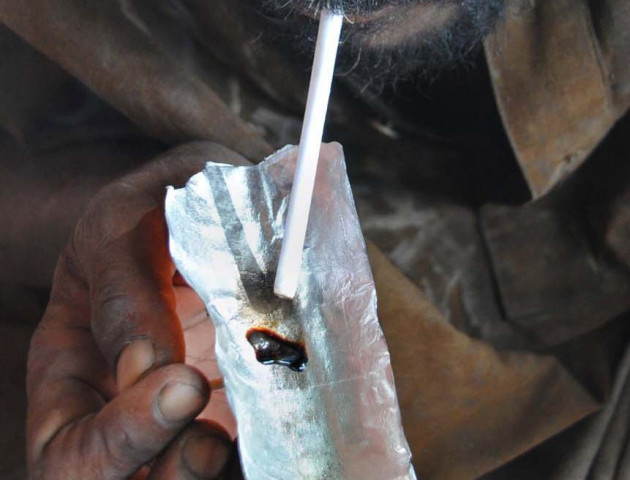Substance addiction on the rise on campuses
Experts say loss, loneliness and peer pressure push students toward harmful substances

"I was in 6th grade when I lit my first cigarette, just weeks after losing my mother," recalled Saad, a BS student at a local university, his voice trembling as he recounted falling prey to addiction.
"I didn't know what I was running from, but I knew I didn't want to feel anything. What started as a way to numb the pain quickly turned into an addiction I couldn't escape."
Behind every drug-addicted student lies a story most people never hear - not of rebellion, but of loss, trauma, loneliness, and silent suffering.
For Saad, what began as a cigarette at a young age evolved into a chain of dependencies. He did not choose drugs to feel high; he chose them to feel nothing.
Psychological deprivation and unresolved emotional pain are often at the root of such choices.
Speaking to APP, clinical psychologist and psychosexual family therapist Dr Sobia Khateeb explained that addiction rarely begins with the drug itself; it begins with what is missing. "Peer pressure, trauma, academic stress, low self-worth, and family conflict are among the major triggers," she said. "Most young people are not looking to get high. They're looking for relief - from grief, loneliness, or pressure to perform."
"Saad's story is just one thread in a growing web of youth addiction across Pakistan, particularly among students, where academic pressure, emotional neglect and easy access to harmful substances are quietly fueling a crisis few dare to confront," psychiatrist Dr Zainab told this scribe.
Dr Muhammad Manshoor Hussain Abbasi, Assistant Professor at COMSATS University Islamabad, pointed to the rising use of substances like vape pods and nicotine pouches, often considered harmless.
"These are consumed secretly, often under the impression they're not as harmful," he told APP. "While smoking is banned on campus, the university cannot monitor students off-campus. Within our premises, the Proctorial Board enforces strict discipline.
If a student is caught, the case is reviewed and appropriate action - ranging from fines to suspension - is taken."
He stressed that prevention must go beyond punishment. "It's about creating awareness and giving students reasons to say no."
At NUML University, educationist Muhammad Sanaullah Khan takes a proactive approach. "Conversations matter," he said.
"I integrate real-life cases into my lessons to show what drug use does in the long run. I also check in on students who seem withdrawn or stressed. Being an educator today means being more than a teacher. You have to build trust. Only then will students come to you before they turn to drugs."
Drug addiction is not just a health issue; it is a social, educational, and moral crisis. It threatens students' futures, damages mental health, ruins careers, and destroys relationships.
Substances like vape pods, Velo, and synthetic drugs are becoming dangerously normalised, often without effective checks or monitoring.
Law enforcement officials also recognise the growing concern. Speaking to APP, Waseem Raja, a senior police official at Margalla Police Station, said drug-related offences involving youth are taken seriously.
"We track drug peddlers in collaboration with civil society. Their records are reviewed, and repeat offenders are punished under the Control of Narcotic Substances Act," he stated.
"If students are caught using drugs outside their campuses, we involve their families and institutions immediately. Counselling is the first step, but serious or repeat offenders face legal action." He emphasised that the approach is both preventive and corrective.
"We want to cut off supply chains and help students find a path back, not just throw them behind bars."



1724319076-0/Untitled-design-(5)1724319076-0-208x130.webp)















COMMENTS
Comments are moderated and generally will be posted if they are on-topic and not abusive.
For more information, please see our Comments FAQ